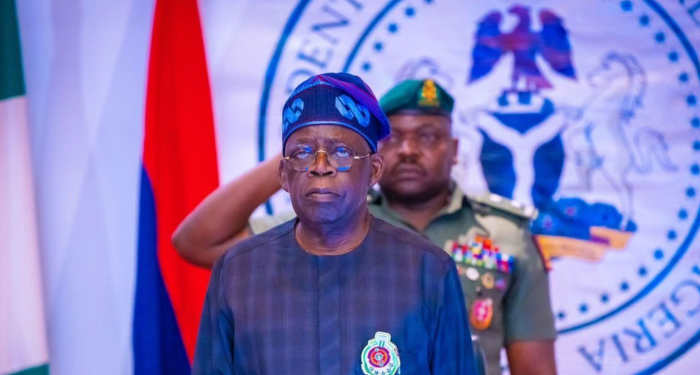From Juliana Taiwo-Obalonye, Abuja
Prominent Nigerian politician, businessman, and traditional leader from Delta State, Ayiri Emami, yesterday raised concerns over political representation of the Itsekiri people in the President Bola Tinubu’s administration.
Speaking to State House Correspondents after a meeting with the President in the Villa, Emami expressed frustration over the perceived marginalisation, stating that despite their significant contributions to Nigeria’s oil and gas sector, the Itsekiri hold only one seat in the Federal House of Representatives and two in the Delta State House of Assembly.
The Chairman and CEO of A & E Group Nigeria Limited, a major contractor in the oil and gas sector, emphasised that the Itsekiri community, which largely supported Tinubu’s election, expects to see political patronage and inclusion in government.
He reiterated that when citizens contribute to governance, they should receive corresponding benefits and representation.
Emami called for an urgent attention to these issues, asserting that the Itsekiri deserve a more substantial role in shaping policies that affect their lives and communities.
Asked if the Itsekiri were being under-represented politically, he said: “I think those issues are being handled politically. He (President Tinubu) said he’s going to look at it, because when you work, you expect some dividends. Is that not so? As Itsekiri, we actually voted for Mr. President, so we expect that we need patronage to be part of the government. Our people need to be part of the government.”
He used the opportunity of the meeting to discuss critical infrastructure and political representation issues affecting Delta State with President Tinubu.
He emphasised the importance of the Omadino-Gbaramatu-Ugborodo Road, highlighting the ongoing work by Chevron and the Niger Delta Development Commission (NDDC) to improve access.
He also raised concerns about the Warri Port, urging for enhanced dredging efforts to accommodate larger vessels. He said President Tinubu assured him that the Nigerian Ports Authority (NPA) was addressing the challenges, including mapping and charting the Escravos channel for better navigation.
